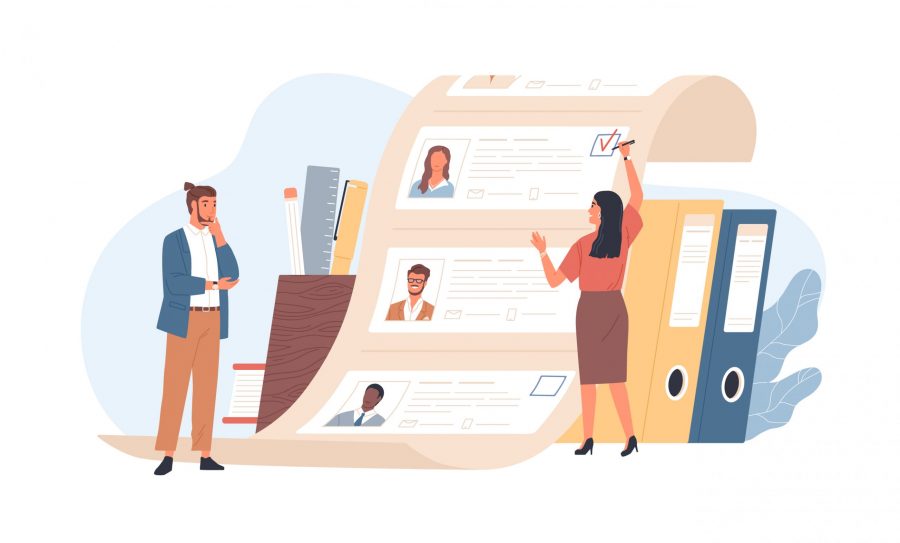You are not alone if you are wondering what the difference is between HRBPs and HR. HRBPs are becoming indispensable drivers of digitalization in organizations. They work closely with senior management and confidently take charge of change processes. Here are some examples of HRBP roles and what they do.
HRBPs
HRBPs, or human resource business partners, link HR and business. Large companies have a broad range of responsibilities, from managing 200 to several thousand employees. Typically, their scope of control is directly related to their strategic role. This is why it is so important for HRBPs to have good communication and presentation skills.
HRBPs work closely with management teams and organizations to help them develop and implement strategies that support their organizational goals. They are also the bridge between HR and other parts of the business, ensuring that people management is aligned with organizational goals. They often have a broad understanding of the business and the markets they operate in, and they collaborate with managers to develop practical solutions to challenges.
HRBPs must be very strong communicators and have a solid grasp of people management. They must have the confidence to assert their views and stand up for the business’s best interests. They also need excellent problem-solving and leadership skills, as they will be responsible for managing a vast amount of resources. As the world around us continues to change, HRBPs must stay abreast of all trends and be able to adapt to these changes.
HR business partners
HR business partners are critical in ensuring that a company functions efficiently and effectively. In an age where global companies compete for talent, HR business partners must be culturally aware of the countries and regions where they do business and understand their workforce and compensation structures. They also need to have a solid background in human resources management. Finally, they also need to learn about the organization’s operations and culture to gain the confidence and respect of business leaders.
HR business partners focus on aligning the people strategy with the business strategy. They work closely with department heads and company leadership to develop and implement HR strategies and initiatives that help the company meet its goals. They also consult with the executive team on matters relating to the human resources department. They aim to support and develop business objectives by applying HR strategies to improve the organization’s culture and overall employee experience score.
To become an HR business partner, you must have at least four years of experience in an HR-related role. It would be best if you also had experience working with data visualization and decision-support tools. Moreover, it would help if you thoroughly understood different labor laws and business practices.
HR managers
The HRBP must be able to leverage technology to increase efficiency and drive business results. Adopting the right technology will increase employee engagement and productivity. However, adopting the wrong technology can hamper productivity and create disgruntled employees. The HRBP should also be able to advocate for employees and push back when necessary. The proper HRBP will protect a company from potential lawsuits and unwanted turnover.
The HRBP should have strong communication skills and the confidence to say no to senior executives. They should also have extensive experience in business management. In addition, they should have an understanding of various labor laws and business practices. Ultimately, they should be able to deal with any resistance that they might face.
The HRBP is a vital driver of digitalization. They work closely with executives and can confidently take control of change processes. In addition, they will be responsible for developing standard operating procedures (SOPs), benchmarking HR processes against industry best practices, and communicating regularly with the HR community.
HR generalists
As the HR industry grows increasingly complex, the need for HR professionals with specialized knowledge and skills is growing. These professionals are uniquely positioned to help their companies meet their strategic objectives. Their role requires extensive knowledge of the workplace and the business environment, as well as cultural and social issues that affect business. As a result, these professionals are often referred to as HR business partners.
HR Generalists and HRBPs typically hold entry-level positions in an organization. They are responsible for monitoring staff turnover, logistics, and new employee hiring. In addition to monitoring the needs of employees, HR generalists should have a thorough understanding of a company’s organizational structure and how many employees it needs in different departments.
HR Generalists: Generalists work in smaller or mid-sized businesses. They specialize in handling a variety of HR duties and tend to work in a more hands-on manner. For example, they may handle complex employee situations, such as discrimination or terminations. HRBPs, on the other hand, focus on ensuring that HR processes and procedures comply with all relevant laws and regulations.








